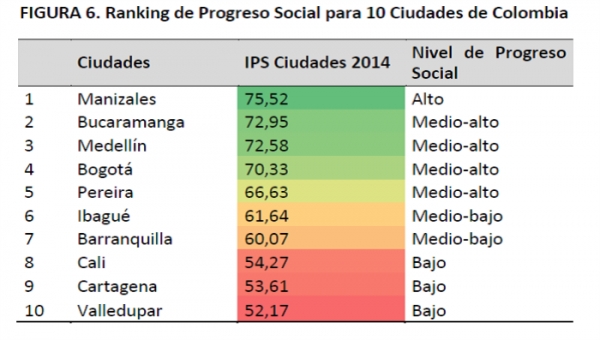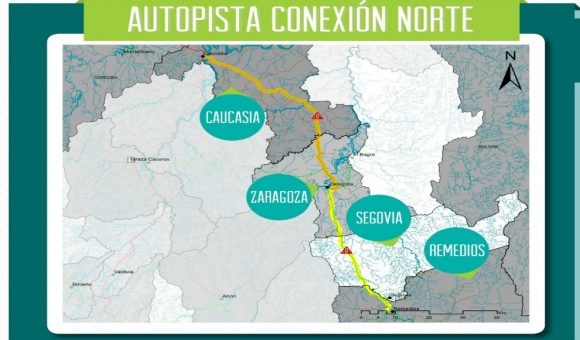Medellin, Cartagena Making Biggest Gains in Social Progress: IPS Study

Medellin and Cartagena are the two Colombian cities making the biggest gains in a new “Social Progress Index” (SPI, or “IPS” in Spanish) ranking, as found in a study sponsored by major international and Colombian foundations as well as university researchers.
According to the study, Medellin and Cartagena posted a 25% gain in the social progress index between 2008 and 2014, mainly because of efforts to open doors to new opportunities for ordinary citizens, as well as to improve personal safety.
The study emerged from an initiative sponsored by the Social Progress Imperative (SPI), an organization that includes researchers at the Harvard Business School (USA), the Institute for Liberty and Democracy (Peru), the Rockefeller Foundation (USA), the Massachusetts Institute of Technology (USA) and Oxford University (UK).
Participants in the new study include the Avina Foundation, Fundación Corona, Compartamos con Colombia, Deloitte, Llorente & Cuenca, the “Como Vamos” (how are we doing?) network of Colombian cities, and the School of Government at the University of the Andes (Colombia).
The index arises from data gathered between 2009 and 2014 by 10 of the cities in the “Como Vamos” network, which includes Bogotá, Medellin, Cali, Manizales, Bucaramanga, Barranquilla, Cartagena, Ibague, Pereira and Valledupar.
Cities are scored on a scale of 0 (worst) to 100 (best) employing 48 indicators, 12 components and three dimensions, according to SPI.
“Many of the indicators are relevant to any city in the world, as the rate of homicides or deaths from traffic accidents are measures of personal security, as is life expectancy and the rate of suicides in the component of ‘health and welfare,’ or sustainability of the transport system, noise pollution or access to garbage-collection service incorporated into the ‘environmental sustainability’ component,” according to the study.
“Other indicators have been included to account for specific problems to the Colombian cities, especially in the dimension of opportunities, such as those persons displaced by [violence] or the inclusion of demobilized persons, measured in the ‘tolerance and inclusion’ component, or teen pregnancy and child labor, both included in the ‘perrsonal freedom and choice’ component,” according to the study.
Collectively, the 10 Colombian cities in the latest index had an over-all score of 64.0. “This means that these cities are moving towards medium-high levels of social progress,” according to the study.
“While the cities of the Andean region — Manizales, Medellin and Bogota, with an average of 72.8 IPS — are transitioning to high levels of social progress, Caribbean cities — Barranquilla, Cartagena and Valledupar, with an average of 55.3 IPS — are on the threshold of medium-low levels of social progress,” according to the report.
While Manizales had the highest score in 2014, “Medellin social progress has been showing strengths in the area of opportunities, especially with regard to freedom of movement, access to recreation and culture, civic coexistence and inclusion of people with disabilities,” according to the study.
“An agenda of social progress for Medellin should prioritize areas for environmental sustainability and housing, where there have been setbacks in the past six years of 14% and 7% respectively,” according to the study.
Commenting on the study, SPI chairman Michael Porter added: “I have seen firsthand how Colombia stands out in terms of innovation. Medellin, for example, was proclaimed by the Wall Street Journal as ‘the most innovative city,’ beating competitors including New York City.
“Colombia’s cities have a rich tradition of collecting data on human welfare and it’s consistent that Colombia is the first site where the Social Progress Index applies to cities,” Porter added.
















